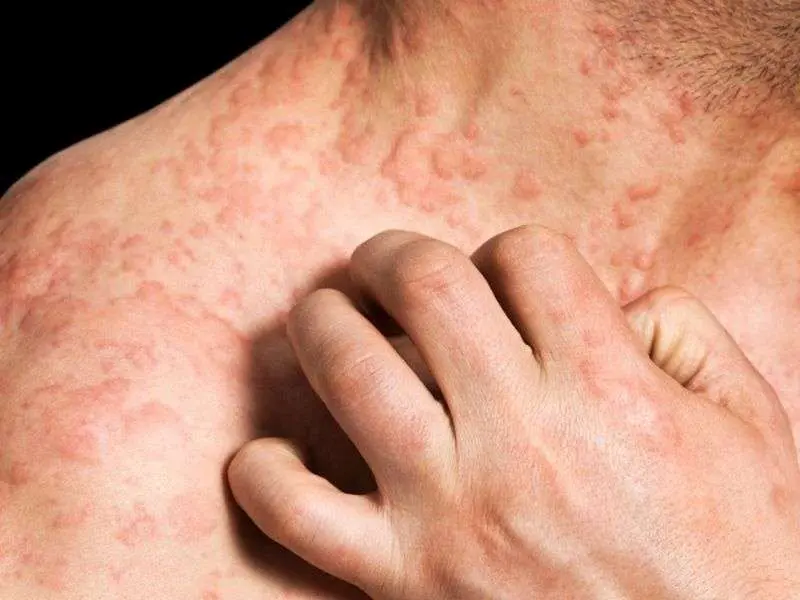- Home
- Medical news & Guidelines
- Anesthesiology
- Cardiology and CTVS
- Critical Care
- Dentistry
- Dermatology
- Diabetes and Endocrinology
- ENT
- Gastroenterology
- Medicine
- Nephrology
- Neurology
- Obstretics-Gynaecology
- Oncology
- Ophthalmology
- Orthopaedics
- Pediatrics-Neonatology
- Psychiatry
- Pulmonology
- Radiology
- Surgery
- Urology
- Laboratory Medicine
- Diet
- Nursing
- Paramedical
- Physiotherapy
- Health news
- Fact Check
- Bone Health Fact Check
- Brain Health Fact Check
- Cancer Related Fact Check
- Child Care Fact Check
- Dental and oral health fact check
- Diabetes and metabolic health fact check
- Diet and Nutrition Fact Check
- Eye and ENT Care Fact Check
- Fitness fact check
- Gut health fact check
- Heart health fact check
- Kidney health fact check
- Medical education fact check
- Men's health fact check
- Respiratory fact check
- Skin and hair care fact check
- Vaccine and Immunization fact check
- Women's health fact check
- AYUSH
- State News
- Andaman and Nicobar Islands
- Andhra Pradesh
- Arunachal Pradesh
- Assam
- Bihar
- Chandigarh
- Chattisgarh
- Dadra and Nagar Haveli
- Daman and Diu
- Delhi
- Goa
- Gujarat
- Haryana
- Himachal Pradesh
- Jammu & Kashmir
- Jharkhand
- Karnataka
- Kerala
- Ladakh
- Lakshadweep
- Madhya Pradesh
- Maharashtra
- Manipur
- Meghalaya
- Mizoram
- Nagaland
- Odisha
- Puducherry
- Punjab
- Rajasthan
- Sikkim
- Tamil Nadu
- Telangana
- Tripura
- Uttar Pradesh
- Uttrakhand
- West Bengal
- Medical Education
- Industry
Long-Term Dupilumab Therapy may provide sustained Symptom Relief among patients with CRSwNP: Study

In a recent study investigators established that extended dupilumab therapy-up to three years-is highly effective in the management of chronic rhinosinusitis with nasal polyps. There was persistence of improvement in symptoms related to the disease, impairment, nasal polyp burden, and also in olfactory function. A recent study was published in the journal Allergy by Huber P. and colleagues. The findings accentuate dupilumab's long-term benefits in the control of symptoms in CRSwNP and also its role in reducing type 2 inflammation through inhibition of the interleukin-IL-4 and IL-13 signaling pathways.
This was a multi-center retrospective study done in five tertiary referral centers in Germany interested in real-world outcomes of dupilumab treatment in patients with CRSwNP. Adults aged 18 years and above who continued to have poorly controlled CRSwNP despite conventional treatments were included. Patients were selected according to the criteria determined in the guidelines, EPOS 2020, all starting dupilumab therapy at a dose of 300 mg subcutaneously every two weeks.
It is estimated that the research team obtained an extensive history of medical conditions prior to dupilumab therapy and history of using oral corticosteroids in the past and sinus surgery and diseases such as asthma, allergic rhinitis, and eczema. Primary efficacy and safety by subjective and objective testing at baseline and follow-up.
• Data from 150 adults with CRSwNP were analyzed, and at the 36-month follow-up, the treatment was completed by 138 participants.
• According to medical researchers, during the treatment, clinically meaningful improvements in many measures ensured that dupilumab therapy was effective and sustained over three years.
• The VAS of the patients decreased dramatically from 7.5 ± 2.5 at baseline to 1.6 ± 1.3 at follow-up at 36 months, showing a significant reduction in impairment due to the disease.
• NPS decreased significantly, from 5.3±1.8 at baseline to 0.7±1.1 after 36 months, reflecting the significant reduction of nasal polyp burden.
• An improvement in rhinosinusitis symptoms was shown, as SNOT-22 scores decreased from 59.4±19.4 to 18.0±15.0-a further confirmation of the positive effect this therapy has on the patients' well-bei
• The sense of smell has improved tremendously among the participants as the olfactory scores increased from 3.2 ± 2.5 to 8.4 ± 2.8. Ultimately, 75% of the patients had either normosmia or hyposmia at the end of the study, therefore indicating the large recovery in olfactory function.
• Despite the overall efficacy of the therapy, there were 69 adverse events reported amongst 48 participants, though most were mild and self-limiting. Sixteen patients discontinued therapy, with 12 discontinuing permanently.
The long-term results of the current study on dupilumab treatment in CRSwNP show that biological therapy is associated with positive, sustained effects in all the key clinical outcomes evaluated: symptoms of rhinosinusitis, burden of nasal polyps, olfaction, and impairment. The high reduction in disease-related impairment provides additional potential for dupilumab to enhance quality of life in patients with CRSwNP over extended durations.
Reference:
Huber P, Förster-Ruhrmann U, Olze H, et al. Real-world data show sustained therapeutic effects of dupilumab in chronic rhinosinusitis with nasal polyps (CRSwNP) over 3 years. Allergy. 2024; 00: 1-10. doi:10.1111/all.16263.
Dr Riya Dave has completed dentistry from Gujarat University in 2022. She is a dentist and accomplished medical and scientific writer known for her commitment to bridging the gap between clinical expertise and accessible healthcare information. She has been actively involved in writing blogs related to health and wellness.
Dr Kamal Kant Kohli-MBBS, DTCD- a chest specialist with more than 30 years of practice and a flair for writing clinical articles, Dr Kamal Kant Kohli joined Medical Dialogues as a Chief Editor of Medical News. Besides writing articles, as an editor, he proofreads and verifies all the medical content published on Medical Dialogues including those coming from journals, studies,medical conferences,guidelines etc. Email: drkohli@medicaldialogues.in. Contact no. 011-43720751


